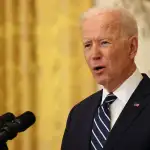The Department of Justice’s Office on Violence Against Women released new grant opportunities after deleting a previous set of them in February and telling organizations to halt their applications. The grants include new priorities and many more restrictions on how funding may be used, requiring potential grantees to adhere to President Donald Trump’s executive orders banning federal funds being used for “illegal diversity, equity and inclusion” or what he terms “gender ideology.”
The changes will likely make it more difficult for organizations that focus their services on victims of color, LGBTQ+ survivors or immigrants to apply for grants.
On February 6, the eight grant opportunities listed on the OVW website were removed and replaced with a message indicating the applications were under revision. There had been no updates on funding notices until May 7, well after the original grant application deadlines.
Three months later, six new grant opportunities appeared. Only two were for grants originally taken down in February. The Department of Justice did not reply to a request for comment on whether the other grants would be re-listed and whether the Office on Violence Against Women was on track to distribute funds for this financial year.
The new notices come after over 100 House members sent a letter to Attorney General Pam Bondi expressing concerns about funding for domestic violence programs. Over 600 organizations signed a separate letter to Bondi asking her to commit to the work of the Office on Violence Against Women and distribute “authorized, appropriated federal funding.” Several organizations that provide services to victims of domestic violence have been urging the public to write to their representatives about funding.
All have a new section stating the office will prioritize applications that “substantively address” measures to “combat human trafficking and transnational crime, particularly crimes linked to illegal immigration and cartel operations” or that seek to provide victims services or improve law enforcement response in rural areas, tribal nations and small towns will be prioritized.
Several other grants state that the Office on Violence Against Women will prioritize applications from local law enforcement agencies that “certify they comply with federal immigration law” — a stab at jurisdictions that have declared themselves sanctuary cities via policies that limit cooperation with federal immigration enforcement.
All of the grants updated last week included new restrictions on spending grant money on “promoting or facilitating the violation of federal immigration law,” “inculcating or promoting gender ideology” or “promoting or facilitating discriminatory programs or ideology” — all in line with executive orders signed by Trump.
Grantees are not allowed to spend money on “activities that frame domestic violence or sexual assault as systemic social justice issues rather than criminal offenses.” Spending on “generic community development or economic development” is also banned.

Support The 19th
Your donation will allow us to maintain our independence and remain true to our mission to represent women and LGBTQ+ people. Together, we’ll continue to cover this ongoing American story — without fear or favor.
Notably the section banning spending on “illegal DEI” also says it should not conflict with “statutory obligations, such as funding for HBCUs, culturally specific services, and disability programs” — stipulations that are laid out in federal code. Previous versions of grants banned organizations from conditioning assistance on proof of citizenship; that language no longer appears.
There are a few other nods to the Trump administration’s priorities: cutting excessive consultancy fees, similar to Elon Musk’s cost-cutting initiative known as DOGE; mandating that services cannot prioritize “illegal aliens” over U.S. citizens; and declaring no funding should be used to undermine the role of law or immigration enforcement.
Applicants are now required to attach a letter to the director of the Office on Violence Against Women certifying that grant funds will not be used for any out-of-scope activities.
Most revised notices still list the statutory priorities of grants to support underserved populations, a requirement that dates back to the original Violence Against Women Act that created the funding doled out by the Office on Violence Against Women today. However, unlike the original notice published in January, it only cites the legal code defining “underserved populations” instead of replicating it in full.
Federal law defines that group as at minimum “populations who face barriers in accessing and using victim services and includes populations underserved because of geographic location, religion, sexual orientation, gender identity, underserved racial and ethnic populations, populations underserved because of special needs (such as language barriers, disabilities, alienage status, or age).”






